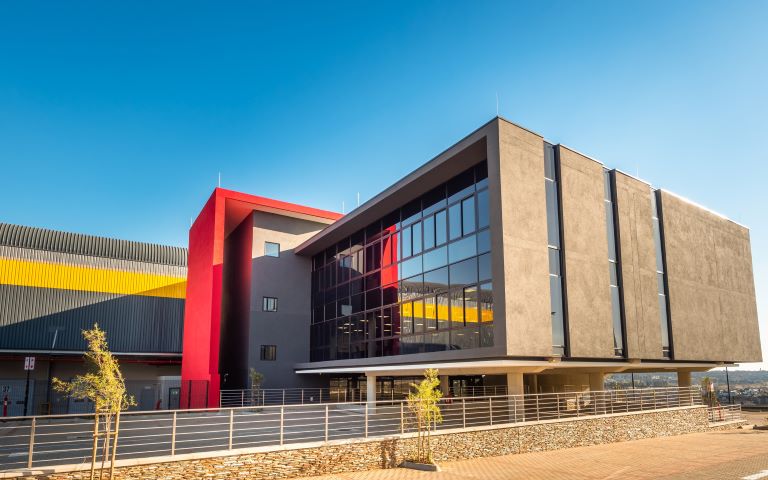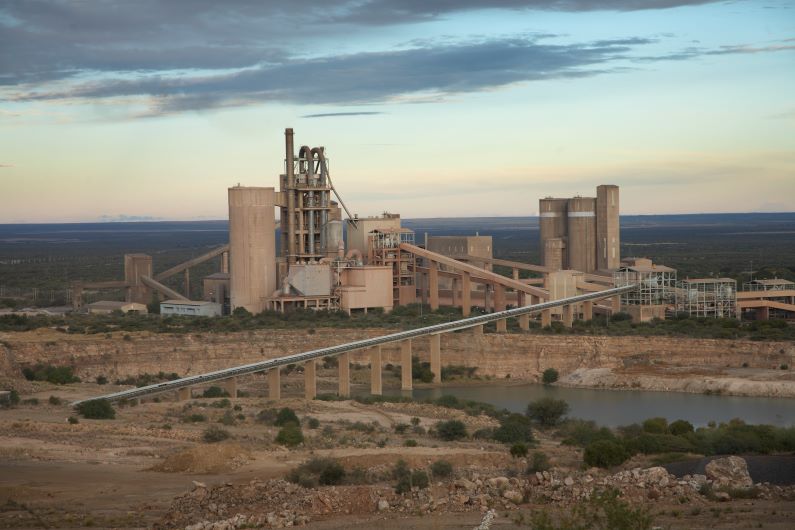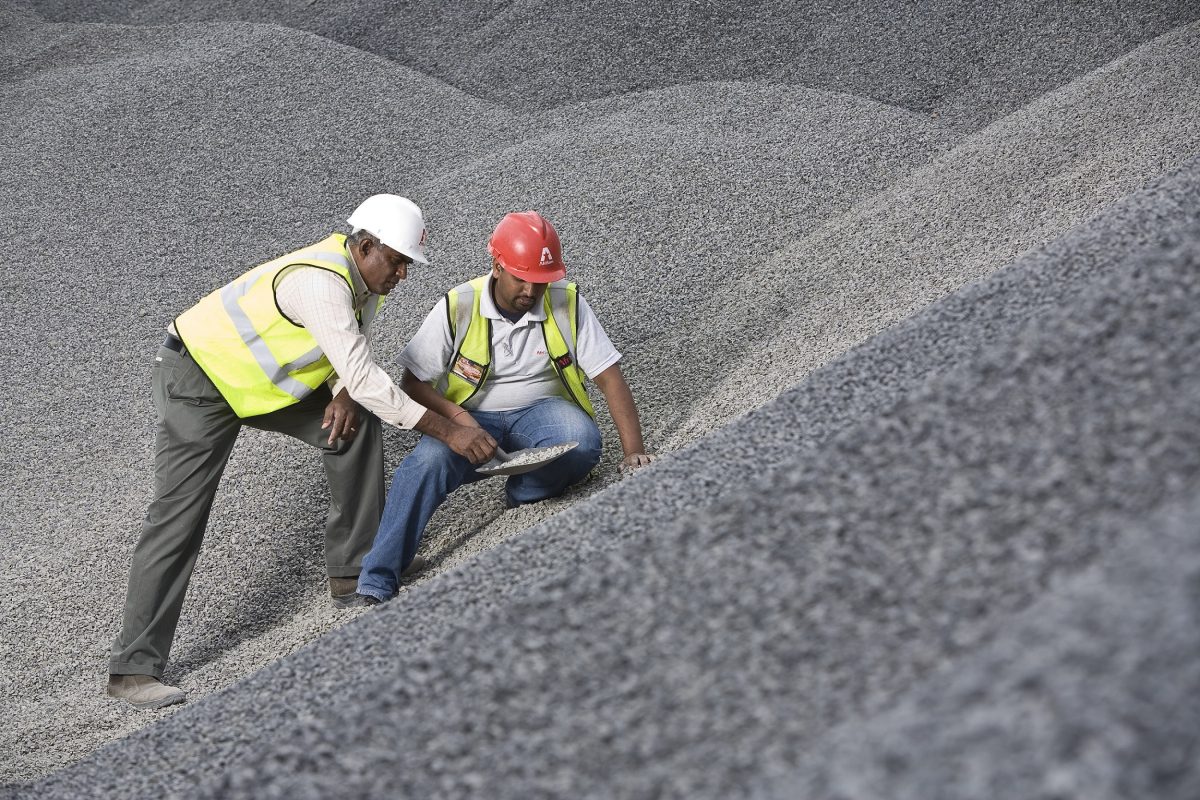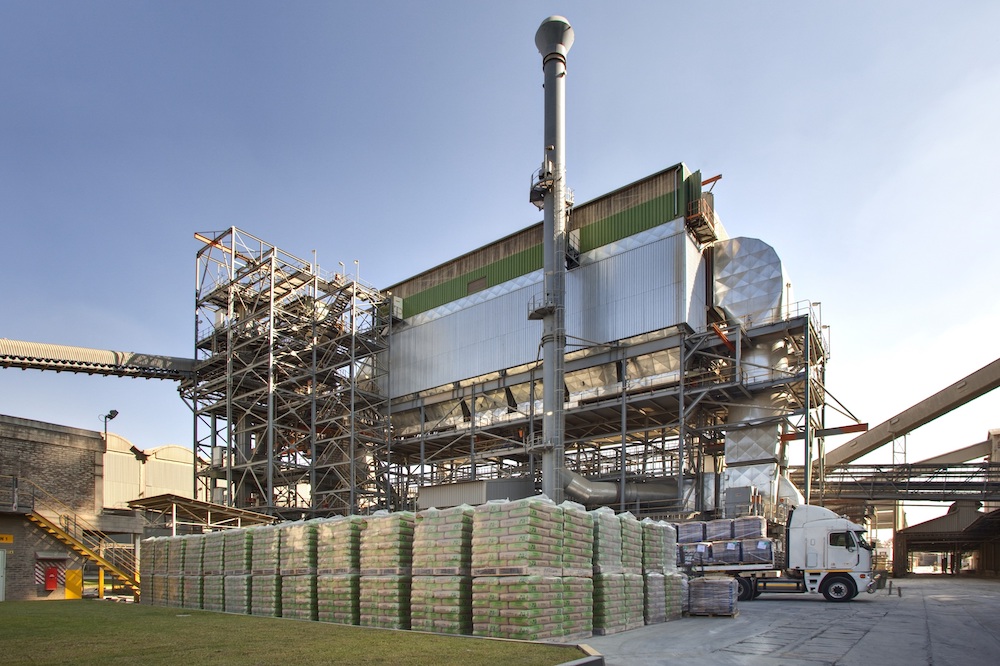
AfriSam is synonymous with environmentally conscious manufacturing processes, honouring their values of ‘People, Planet and Performance’. As a leading supplier of construction materials, AfriSam has over many years pioneered and sustained numerous initiatives towards a greener planet across all its business units, for the benefit of all stakeholders and at all touchpoints.
As one of the top ten CO2 emitters globally when measured per capita, the cement manufacturing industry is often singled out as the culprit in the greenhouse gas debate and comes under fire regularly to reduce its carbon footprint.
 “AfriSam was at the forefront to introduce proactive measures in the southern African cement manufacturing sector,” according to Nivashni Govender, environmental specialist at AfriSam. “To put actions to our concerns, we established our own environmental department as early as 1992 and developed an environmental policy just two years later.”
“AfriSam was at the forefront to introduce proactive measures in the southern African cement manufacturing sector,” according to Nivashni Govender, environmental specialist at AfriSam. “To put actions to our concerns, we established our own environmental department as early as 1992 and developed an environmental policy just two years later.”
“Continuous investment in research and development has enabled AfriSam to improve processes, technology and products with the ultimate goal of energy optimisation and emission reduction encompassing the complete range of our products: aggregate, cement and concrete,” says Govender.
“It is in our cement manufacturing business where the most notable impact on the lowering of carbon emissions is achieved. Our ongoing focus on alternative fuels and resources (AFRs) has allowed us to steadily reduce the amount of coal burnt in our cement kilns, which in turn contributes to lower CO2 emissions,” Govender says. “One example is at our Dudfield plant where we developed and implemented process modifications to allow us to co-process scrap tyres – a strategy that also contributes significantly to addressing the environmental hazards posed by tyres when they are disposed of in a landfill.”
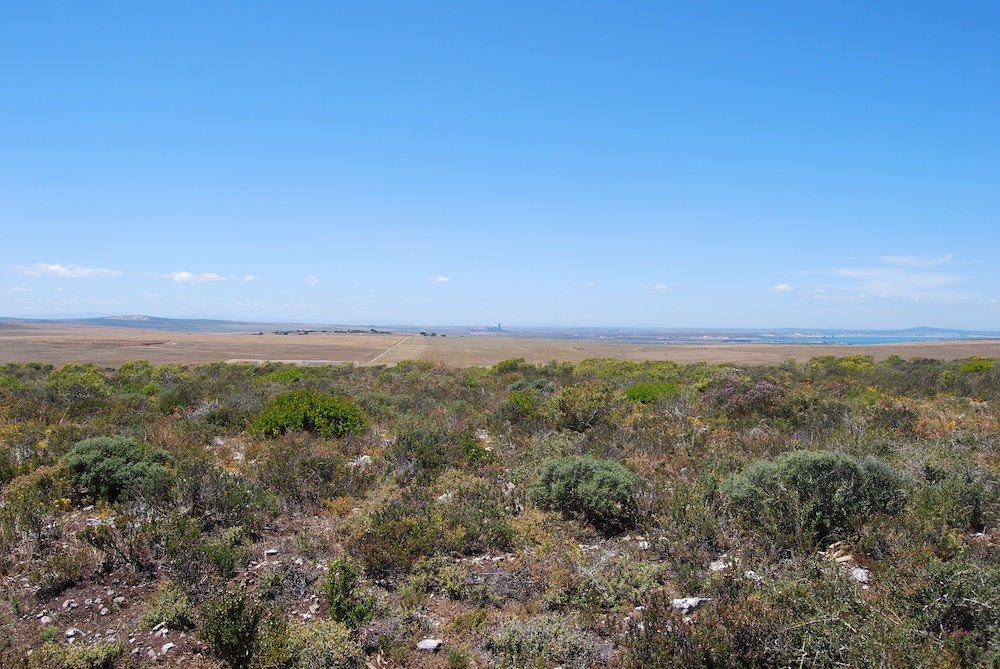
Govender continues: “Cement kiln emission improvement has been the AfriSam way for a long time, setting the benchmark for others.”
“The introduction of our green cement product range in 2000 added to our goal of becoming one of the lowest CO2 generators per ton of cement in Africa,” she expands. “The use of extenders in our cement has resulted in a substantial reduction in our clinker factor without compromising the quality of our products.”
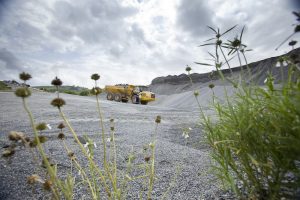
Energy and water conservation are ongoing programmes, featuring high on AfriSam’s environmental agenda, according to Govender. Energy efficient lighting has been installed across the company’s cement, readymix and aggregate quarry facilities, and water conservation has become a priority in all its operations.
“Our programmes focus on reducing the amount of water per ton of cement and aggregate produced, or per ton of readymix prepared,” she says. “Our readymix plants, for instance, have strict re-use and recycling processes, and must recycle at least 50% of their grey water generated, on-site.”
Dust suppression remains another critical environmental priority for all AfriSam readymix plants. Where deemed necessary as an additional measure, automatic dust suppression systems using fine recycled water mist have been installed around the perimeter of identified plants with additional systems where the readymix trucks are loaded.
“When it comes to aggregate production, rehabilitation and biodiversity at our quarry sites is a priority. As early as 1986 AfriSam formed the first trust of its kind specifically to cater for rehabilitation costs on closure – even before this was a legislated requirement for mines,” she says. “Our current strategy of concurrent rehabilitation – in which we rehabilitate as we mine – has proved very effective both from an environmental and ecological perspective, as well as a cost perspective.”
AfriSam’s attention to protect and foster biodiversity, especially where species are protected by law or are endangered, involves detailed and ongoing research to measure the environmental impact of operations on species of flora and fauna. As a commitment to protecting biodiversity, specific biodiversity plans have been developed across all cement and aggregate sites.
“Environmental protection also has implications when it comes to cultural heritage,” says Govender. “When an area of underground caves were discovered at one of our then active quarries near Sterkfontein in Gauteng – part of a World Heritage Site – we decided that the value of this contribution to our country’s cultural heritage and scientific knowledge far outweighed any income the quarry could generate for the company. Working with the University of the Witwatersrand, we donated this valuable national treasure over for scientific and public use, while continuing to support its maintenance.”
The environmental focus extends to the management of waste generated at all operations, where oil, conveyor belts and pallets are reused or recycled wherever possible, and waste is separated on site to allow for more environmentally friendly disposal. Disposal to landfill is the last option.
In addition to taking responsibility for their own actions, AfriSam plays a leading role in creating awareness and establishing open debate about sustainability within the broader context of the industry. One such platform is the “AfriSam-SAIA Awards for Sustainable Architecture + Innovation”, launched in 2009.
The awarded projects and programmes make a positive contribution to communities and reduce environmental impacts through strategies such as the reuse of existing structures, connection to transit systems, low-impact and regenerative site development, energy and water conservation and the use of sustainable or renewable construction materials.
“AfriSam’s reputation of caring for the planet, people and the environment is evident in the way we manufacture our vast product offering and how we conduct our business,” Govender concludes. “This philosophy is underpinned by the Centre of Product Excellence and applies to all business units to actively measure and manage their impact on the environment, whilst continuing to produce high performance products with low carbon footprints”.

